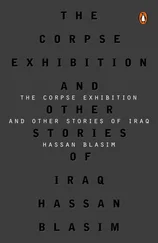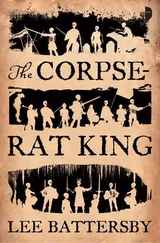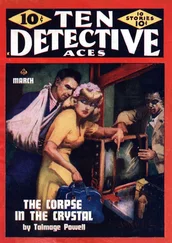Where does this stranger come from?
Where are his kith and kin?
Of poison he died in prison
No crime nor harm had he committed
Woe unto the poisoned one!
He spent his life grieving
O Shiites when a man’s wailing stops
His loved ones surround him
Some kiss and hug
Others close his eyes.
Then he asked the crowd to chant along: “Where does this stranger come from? / Where are his kith and kin?” He urged us every now and then, saying, “Wail for your Imam and don’t hold back.”
Images and emotions crowded my inner domes: my heart and mind. All the statues I never sculpted and the drawings which remained sketches in my mind. Reem and her breast which was amputated, just as our love was. Ghayda’ and her body which flew away like a dove. My father, Ammoury, and Hammoudy. The faces of the corpses I washed and shrouded on their way to the grave. Tears poured down and covered my face. I stayed in that open space, where I could cry without shame and without any explanation. My pain and wounds had a lung to breathe through. Forgive me Musa, son of Ja’far, for crying in your presence and on your day. I am a stranger among your visitors. I am a stranger like you and I am crying for myself.
“Alas,” al-Fartusi said with genuine sadness when I informed him that I was going to Jordan.
“Why? Why are you going and leaving us?”
“I can’t do it anymore. I’m suffocating. I’m not cut out for this job. I wasn’t planning on doing it for two years. I can’t sleep at night. Nightmares are driving me insane.”
He patted me on the shoulder and said: “You think I’m any better? I’ve gotten diabetes and high blood pressure from everything I’ve seen all these years. And now these crooks want to fabricate charges against me.”
“What charges?”
“They want to implicate me in selling human organs. Can you believe that? There are gangs selling human organs. They have entire networks and there were stories about it in newspapers, but that’s all linked to the hospitals. We have nothing to do with that, because organs have to be harvested from the body within a few hours.”
“Why are they accusing you, then?”
“Someone somewhere wants to make some money, and they just want a bribe to stop harassing me.”
“I’m sorry. You of all people don’t deserve this. I hope it works out.”
“Whatever God wills will happen. This is my destiny and if you are destined to leave, then you will leave. I wish you the very best. But why don’t you pray? I bet you these nightmares will go away.”
“God has yet to guide me to the right path. Plus, my nightmares are really something else.”
He shook his head and laughed. I gave him the keys to the mghaysil and we agreed that he would send me the rent in Amman. As we hugged and kissed goodbye, I asked him to take care of Mahdi.
“I’ll treat him like a son,” he said.
The earth was a carpet of sleeping sand stretching from horizon to horizon, nothing disrupting it except the highway on which cars escaped from hell to the unknown. We were part of a convoy of four GMC station wagons. We started out early in the morning so as to avoid the desert darkness that might make us easy prey for the thieves and to make sure we reached the Jordanian border before sunset.
Abu Hadi, our driver, was in his late thirties. He had short black hair and a neatly trimmed moustache. He was overdressed and wore his sunglasses even before the sun was strong. Like all other drivers he had a gun that he hid under the seat before we left. I sat next to him. The other passengers were a man in his fifties and his wife and three daughters. The eldest was seventeen, the youngest about eight or nine. They were all veiled. The girls spent most of the trip asleep. The father exchanged short conversations with his wife about the food they had brought along. The father had hesitated at first when he saw that I, a strange man, was coming along, but Abu Hadi lied, saying that I was his cousin, and that calmed him.
Abu Hadi was silent most of the trip. I was left with my thoughts and worries as I reviewed my options in Amman and the potential consequences of this trip. Every now and again Abu Hadi uttered a few short sentences telling us how many hours of travel remained.
I knew that obtaining permanent residency in Amman was almost impossible. According to the latest restriction, only those who could deposit a hundred thousand dollars in a Jordanian bank were awarded residency. I didn’t have even one tenth of that. As for getting a visa or asylum elsewhere, that too was quite difficult. Professor al-Janabi had promised in his last e-mail to help me get settled in the first few weeks. I had his address and phone number.
It was too dangerous to carry a lot of cash, so I arranged with my sister to transfer what I had saved in the last two years to a bank in Jordan once I got settled there. Getting into Jordan wasn’t always guaranteed.
I felt a bit hungry and reached into the small bag I’d put between my feet and opened the plastic bag inside it. My mother had insisted on making me the walnut-and-date-filled klaycha I liked, filling a whole bag with them. I had brought along a few other things and the book on Mesopotamian creation myths. I had packed one big suitcase. It was tough to decide what to take and what to leave behind. I took plenty of winter clothes, because I had heard that Amman’s winter was severe. I also took two photo albums, which contained many of my photographs from my academy years, as well as of my own works and sketches. And I packed some of my notebooks.
The night before, when I came down the stairs carrying the suitcase to put it next to the door, my mother asked whether I needed help. She leaned on the wall and put her right hand on her cheek and said: “I still can’t believe that you’re leaving.” She started to cry.
I hugged her. “You can come visit me in Amman or wherever I end up. I will visit.”
“I don’t believe you. You’ll never come back.”
She had tried to dissuade me from leaving for the last few days, but I had made up my mind and told her that I couldn’t go on as I had been, that I was suffocating and dying. I left the suitcase by the door to pick it up the next morning before leaving. I gave my mother enough money for a year, and we went to my sister’s new house in Karrada. I wasn’t going to let my mother stay alone at her age and in these circumstances.
In that taxi ride that my mother and I took from our house to my sister’s, I felt for the hundredth time what a stranger I’d become in my hometown and how my alienation had intensified in these last years. I recalled a line of verse I liked: “One is not a stranger in Syria or Yemen, but is truly a stranger in his shroud and grave.” But the stranger today was whoever lived in Rusafah and Karkh, Baghdad’s two halves. Everyone in Baghdad felt like a stranger in his own country. Most people were drained, and the fatigue was clearly drawn on their faces.
I wondered how they went on despite everything. How did they manage to wake up every morning and try? But was there any other choice? Was I just too weak? Thousands of others were running away from this civil war whose end no one can predict.
When would this war tire of slaughtering people and just quit? Not just stop to catch its breath before continuing to tear away at the country, but really quit. I always used to say that Baghdad in Saddam’s time was a prison of mythic dimensions. Now the prison had fragmented into many cells with sectarian dimensions, separated by high concrete walls and bloodied by barbed wires.
We were approaching al-Firdaws Square, where Saddam’s gigantic statue used to stand. I remembered how I saw them years earlier taking down the old monument of the Unknown Soldier, which used to occupy this square and was much more beautiful than the new Unknown Soldier monument. Now, propelled by the illusion of erasing the past and forcibly disfiguring the present, the new Saddams were taking down statues left and right. As if there was a giant axe snatched by each new regime from its predecessor to continue the destruction and deepen the grave. What good are all these metaphors, I wondered.
Читать дальше












